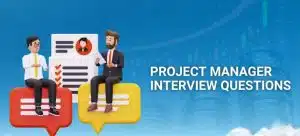Top 10 Project Management Interview Questions (With Answers)
Top 10 Project Management Interview Questions (With Answers)
Contents
- 1 Top 10 Project Management Interview Questions (With Answers)
- 2 1. Can you describe your approach to project management?
- 3 2. How do you handle scope creep?
- 4 3. How do you prioritize tasks in a project?
- 5 4. How do you manage risks during a project?
- 6 5. How do you deal with team conflicts?
- 7 6. What project management tools have you used?
- 8 7. Tell me about a project you managed from start to finish.
- 9 8. How do you measure project success?
- 10 9. How do you manage multiple projects at once?
- 11 10. Why should we hire you as our project manager?
- 12 Final Thoughts on Project Management Interview Questions
If you are preparing for a project management interview, congratulations! That likely means your resume stood out and now it’s time to prove your experience and leadership in person. But what exactly will you be asked? How do you stand out among other candidates?
In this blog post, we have gathered 10 common project management interview questions; along with smart sample answers—to help you prepare confidently and make a lasting impression.
Let’s dive in: Project Management Interview Questions
1. Can you describe your approach to project management?
Why they ask: Employers want to know if your style aligns with their team and how you adapt to different projects.
Sample answer:
My approach combines Agile principles with traditional planning. I believe in clearly defined goals, regular communication, and adapting to feedback quickly. I start with stakeholder alignment, define scope, set milestones, and then lead the team through execution with transparency and flexibility. I use tools like Jira or Trello to track progress, and I hold regular stand-ups to ensure alignment.
2. How do you handle scope creep?
Why they ask: Scope creep can derail timelines and budgets. They want to know how you manage changes.
Sample answer:
First, I ensure that the scope is well-defined from the start, with clear documentation. When change requests come in, I evaluate the impact on time, cost, and resources. Then, I communicate those implications to stakeholders and seek approval before proceeding. I’ve found that setting expectations early and maintaining a strong change control process helps keep projects on track.
3. How do you prioritize tasks in a project?
Why they ask: Time management is critical. Your answer reveals how you organize and delegate work.
Sample answer:
I prioritize tasks based on urgency and business impact. I typically use the Eisenhower Matrix or MoSCoW method to categorize tasks. High-impact, time-sensitive items get tackled first. I also engage the team in prioritization discussions during sprint planning to make sure we’re aligned on what brings the most value.
4. How do you manage risks during a project?
Why they ask: Risk management is essential for successful delivery.
Sample answer:
I start with a risk assessment during the planning phase. I list out potential risks, assess their likelihood and impact, and then create mitigation plans. I also set up regular check-ins to reassess risks as the project evolves. One thing I emphasize is open communication so that team members feel comfortable flagging potential issues early.
5. How do you deal with team conflicts?
Why they ask: Leadership and soft skills matter as much as technical know-how.
Sample answer:
When conflict arises, I address it directly but respectfully. I listen to each person’s perspective, find common ground, and work toward a solution that serves the project. I also try to foster a culture of psychological safety from the beginning, so conflicts are seen as opportunities to improve rather than disruptions.
6. What project management tools have you used?
Why they ask: They are checking for technical proficiency and tool flexibility.
Sample answer:
I’ve worked with a range of tools including Asana, Jira, Trello, Microsoft Project, and Monday.com. I tailor the tool to the team’s workflow—Jira for Agile teams, MS Project for Gantt charts, and Trello for simpler task boards. I’m quick to adapt to new platforms based on project needs.
7. Tell me about a project you managed from start to finish.
Why they ask: They want to hear about real-world experience and outcomes.
Sample answer:
One project I’m particularly proud of was launching a new mobile app for a retail client. I led a cross-functional team of 10, managed a $250K budget, and we delivered the MVP within 4 months. We used Agile methodology, held weekly sprints, and launched on time—resulting in a 30% increase in customer engagement within the first quarter.
8. How do you measure project success?
Why they ask: You need to show that you’re results-oriented and aligned with business goals.
Sample answer:
I measure success based on whether the project met its objectives—on time, within budget, and to the desired quality. But I also look at stakeholder satisfaction and user feedback. Post-project reviews and KPIs like ROI, NPS, or adoption rates help me evaluate long-term success.
9. How do you manage multiple projects at once?
Why they ask: Multi-tasking is part of the job, especially in fast-paced environments.
Sample answer:
I use a combination of time-blocking and task management tools to stay organized. I set clear priorities, delegate effectively, and use dashboards to track progress across all projects. Communication is key—I hold regular check-ins and status updates to ensure nothing slips through the cracks.
10. Why should we hire you as our project manager?
Why they ask: This is your chance to sell yourself. Show your value.
Sample answer:
I bring a balance of strategic thinking, technical skills, and team leadership. I’ve led cross-functional teams, managed budgets over $500K, and delivered high-impact projects on time. But more importantly, I build trust, foster collaboration, and adapt quickly to change. I’m not just focused on delivering projects—I’m focused on delivering results.
Final Thoughts on Project Management Interview Questions
Interviews can be nerve-wracking, but being prepared with thoughtful, honest answers makes all the difference. Use these sample answers as a guide—but make them your own. Real stories and specific examples always stand out more than rehearsed lines.
Pro Tip: Practice your answers out loud or with a friend, and don’t forget to ask questions too. Interviews are a two-way street.
Good luck—you have got this.
Want more interview tips or project management interview questions?
Subscribe to our newsletter or drop a comment below with your questions!





